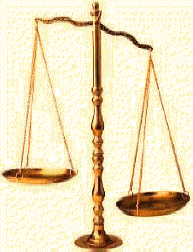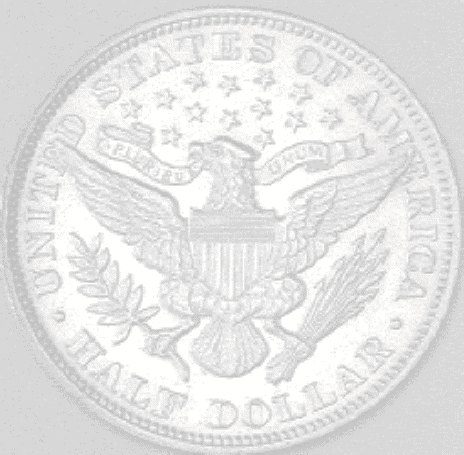
|
|
||
|
|
|
|
|
|
||

-48-
FOR BETTER OR WORSE:
Property and Taxes
It is of singular interest that
during the years of the First Bank that the status of land was changed.
Original land deeds were granted by the King of England and were called
"allodial" land titles. The land was owned free and clear, and for this
reason it was not taxable. In none of the 13 colonies was there a land
tax. Other states such as Washington, some of the mid-western states,
and various sections of Florida still have "allodial" titles.
In the acquisition of the Louisiana Territory, the
federal government purchased the land, and sold portions to individuals
as "deeds of trust." The term means that it is a deed "when all the
liens or taxes are paid." The only problem is that such a day never
arrives --the taxes are never paid off, and the property is therefore
never really owned. If the "owner" fails to pay his annual taxes, his
property will be confiscated.
The Unconstitutionality of A National Bank
The charter for the First Bank
of the United States lasted for 20 years, and expired in 1811.
Controversy erupted over renewing the charter. In a speech delivered on
February 15th, Henry Clay emphatically declared, "I conceive then, sir,
that we are not empowered by the Constitution nor by any practice under
it to renew the charter of this Bank” White, 268).
Again, on March 2nd, he denied a petition by the
stockholders of the Bank calling for an extension of its charter
sufficiently long to settle its affairs. Mr. Clay declared,
Holding the opinion (as a majority of the committee do) that the Constitution did not authorize Congress originally to grant the charter, it follows as a necessary consequence of that opinion, that an extension of it, even under the restrictions contemplated by the stockholders, is equally repugnant to the Constitution” (White, 268).
Another issue troubled Mr. Clay
about the First Bank: it was controlled by foreign capital.
The First Bank and The Threat of International Control
Mr. Clay warned,
Seven-tenths of its capital is in the hands of foreigners, and these foreigners are chiefly English subjects. We are possibly on the eve of a rupture with that nation. Should such an event occur, do you apprehend that the English premier would experience any difficulty in obtaining the entire control of this institution?" (White, 268)
Five years later, Mr. Clay found himself a strong advocate of the Second Bank of the United States. In the Annals of Congress: 1815-1816, p. 1194, Mr. Clay's justification for his turn-about is recorded. He declared
that which appeared to him in 1811 under the state of things then existing not to be necessary to the general government, seemed now to be necessary under the present state of things. Had he then foreseen what now exists and no objection had lain against the renewal of the charter other than that derived from the Constitution he should have voted for the renewal" (White, 269).
Mr. John C. Calhoun favored the creation of a second Bank. In a speech before the House delivered on January 8, 1816, he declared,
One of the first rules of such a bank would be to take the notes of no bank which did not pay in gold and silver . . .. The leading measure of this character would be to strip the banks refusing to pay specie of all the profits from the business of the government --to prohibit deposits with them and to refuse to receive their notes in payment of dues to the government" White, 277).
Daniel Webster introduced a
bill directing Secretary of the Treasury to collect government dues in
specie, and in an amendment to the Bank Bill, he moved that the Bank
should pay its deposits as well as its notes in gold or silver. Both
amendments were adopted (White, 278).
